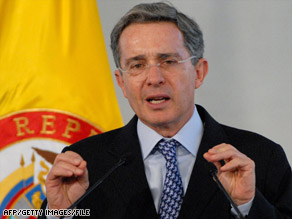"I believe it's a distraction for the Haitian people because they are talking more now about 10 people than they are about one million people suffering in the streets," he said.Haitian Prime Minister Jean-Max Bellerive's anger at the media's focus on 10 U.S. missionaries accused of child kidnapping may be cynically seen as the Haitian government trying to brush aside its own shortcomings. Yet the world press has not been entirely forthcoming and honest in their reporting on a post-earthquake Haiti.
British journalist and author Charlie Brooker's recent look on how the news is reported has become a viral video hit. A few days ago he examined the press coverage of Haiti in his cannot-miss show "Newswipe". As the video below shows, he found that among some bright spots in reporting the media was also guilty of sensationalism and the shameless "search for signs of conflict". (Note that starting at around the 1:50 mark Brooker very briefly touches on Venezuelan relief efforts).
On a personal note, "Newswipe" (and its predecessor "Screenwipe") are truly amazing programs that provide the misanthropic Brooker's astute analysis on the media, television, and pop culture. His observations tend to focus on British press and TV though this impressive takedown of Keith Olbermann and FOX News is a must -see video clip. If you'll forgive me for the hyperbole, Brooker is an absolute genius.
Online Sources - YouTube, BBC News














